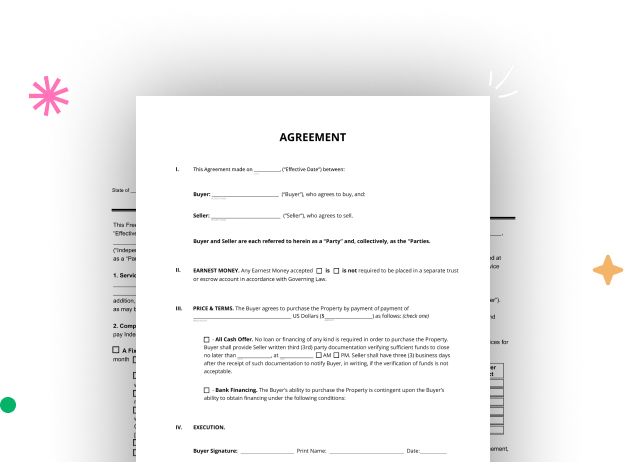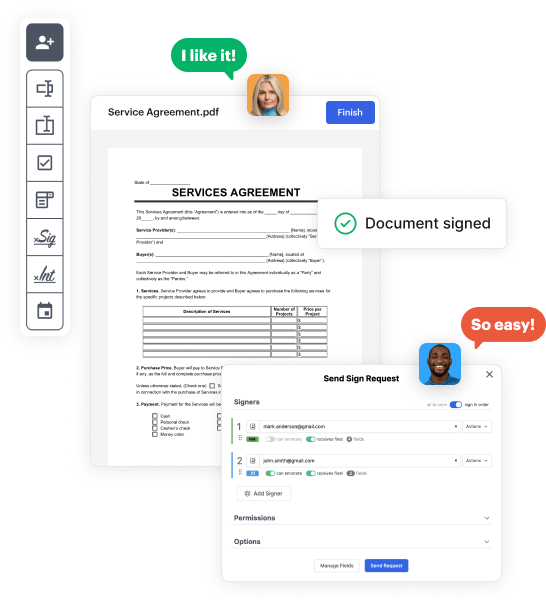

First, sign in to your DocHub account. If you don't have one, you can easily sign up for free.
Once logged in, go to your dashboard. This is your primary hub for all document-centric activities.
In your dashboard, hit New Document in the upper left corner. Opt for Create Blank Document to craft the Arkansas Rental Law from scratch.
Add different fields like text boxes, photos, signature fields, and other options to your template and assign these fields to certain users as needed.
Personalize your form by adding instructions or any other essential information leveraging the text option.
Attentively check your created Arkansas Rental Law for any errors or required adjustments. Utilize DocHub's editing features to fine-tune your template.
After finalizing, save your file. You can select to retain it within DocHub, export it to various storage services, or forward it via a link or email.